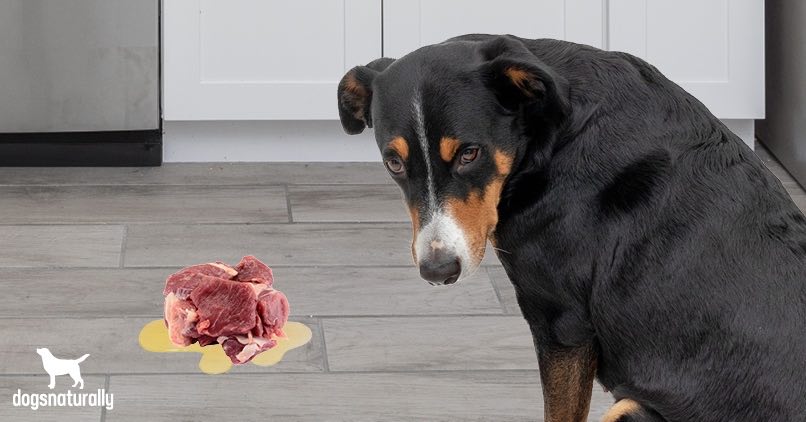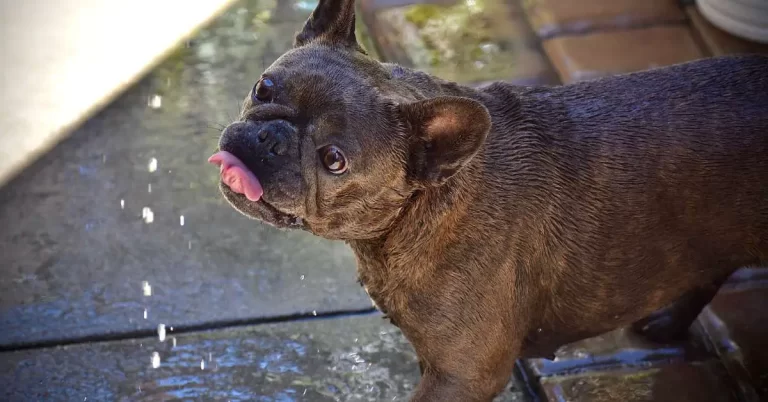Your dog may throw up after drinking water due to various reasons such as drinking too quickly, overhydration, or underlying health issues. Pet owners often become concerned when their dogs experience vomiting after drinking water.
There are several potential reasons for this behavior, including drinking water too quickly, overhydration, or the presence of an underlying health issue. Understanding the underlying causes of this issue can help pet owners better care for their furry companions. We will explore some of the common reasons why dogs may experience vomiting after drinking water and provide helpful tips for pet owners to address and prevent this issue.
By the end of this article, you will have a better understanding of how to ensure your dog’s hydration and health.
Common Causes Of Dog Vomiting
Excessive water intake can lead to over-drinking behavior in dogs, causing vomiting. Dogs may also experience vomiting if they gulp water too quickly, leading to stomach upset. Additionally, some dogs may exhibit sensitivity to a new water source, resulting in gastrointestinal issues. Ingesting contaminated water can also cause vomiting as it may contain harmful bacteria or toxins. Furthermore, dogs may vomit in reaction to medication or treatment, particularly if it irritates their stomach. Vestibular syndrome in older dogs is another potential cause of vomiting after drinking water, as it affects their balance and coordination. Monitoring your dog’s water consumption and ensuring access to clean, uncontaminated water can help prevent vomiting episodes.

Credit: www.dogsnaturallymagazine.com
When To Worry About Your Dog’s Vomiting
It can be concerning when your dog throws up after drinking water, especially if it happens frequently or at specific times. If your dog is vomiting shortly after drinking water, it could be a cause for concern. Pay attention to the frequency and timing of the vomiting episodes, as well as whether it’s vomiting or regurgitation. Look out for signs of dehydration or lethargy, and consider whether there are symptoms of a more serious underlying condition. Vomiting accompanied by diarrhea can also indicate a potential issue that needs to be addressed. Keeping an eye on these factors can help in determining when it’s necessary to seek veterinary attention.
Unpacking The Regurgitation Reflex
Anatomy of a dog’s digestive system: The gastrointestinal tract of a dog consists of the mouth, esophagus, stomach, and intestines. Understanding the gag reflex mechanism: Dogs have a gag reflex that helps expel foreign objects or irritants from the throat. Differentiating between vomiting and regurgitation: Vomiting involves a forceful expulsion of stomach contents, while regurgitation is a passive process where food or water is brought up without abdominal effort. Factors such as esophageal disorders, ingestion of indigestible items, or rapid drinking may trigger regurgitation in dogs.
Potential Health Concerns
Exposure to toxins or chemicals: If a dog throws up after drinking water, it could indicate exposure to toxins or chemicals. Keeping hazardous substances out of reach is crucial for a pet’s safety.
Gastric or esophageal issues: Gastric or esophageal issues may lead to vomiting after drinking water. These can include inflammation, obstructions, or other health concerns. Consult a veterinarian for proper diagnosis and treatment.
Kidney disease implications: Vomiting after water intake could be a sign of kidney disease in dogs. Regular check-ups and monitoring can help in early detection and management of such conditions.
Pancreatitis and hepatic diseases: Pancreatitis and hepatic diseases may also cause vomiting after drinking water. Proper nutrition and regular vet visits are essential for addressing and managing these issues in dogs.
Preventive Measures And Remedies
There are several preventive measures and remedies that can help address why your dog may throw up after drinking water. Offering smaller, more frequent water servings can prevent overconsumption. Using slow-feeder bowls for drinking can also help regulate intake. Additionally, enhancing hydration through dog food can aid in preventing dehydration. Establishing a regular drinking schedule and training to moderate drinking behavior are essential in preventing vomiting after water intake.
Consulting The Vet: What To Expect
When your dog is experiencing vomiting after drinking water, it’s essential to consult a vet to diagnose the exact cause. The vet may recommend laboratory tests and imaging to rule out potential conditions. Providing a detailed medical history of your dog’s behavior, diet, and any recent changes will help the vet determine the potential causes. Once a diagnosis is reached, the vet will discuss available treatment options and work with you to create a care plan for your dog’s recovery.
Home Care Strategies
Implementing changes in water intake: It’s important to monitor and control your dog’s water intake to prevent overconsumption, which can lead to vomiting. Consider regulating the amount of water your dog drinks at a time and observe any excessive or rapid consumption.
Observing for other symptoms or changes: Keep an eye out for any other symptoms or changes in your dog’s behavior. These may indicate an underlying issue that requires attention. Behavior changes, discomfort, or lethargy could be signs of a problem.
Keeping your home environment safe and clean: Maintaining a clean and safe environment for your dog is essential. Ensure that your dog has access to clean water and a safe space to rest and digest comfortably.
Dietary Adjustments And Supplements
It is essential to ensure that your dog is consuming a balanced diet to promote digestive health. Including probiotics in their diet can help to maintain a healthy gut flora, potentially reducing the occurrence of vomiting. Additionally, dietary fibers can aid in digestion and prevent gastrointestinal issues. If your dog continues to experience vomiting after drinking water, electrolyte solutions may be beneficial in replenishing lost fluids and nutrients. These adjustments and supplements can contribute to overall digestive well-being and reduce the likelihood of vomiting in dogs.
Long-term Health Management
Regular veterinary check-ups: It’s crucial to schedule regular check-ups with your veterinarian to ensure your dog’s overall well-being. Proactive healthcare can help identify any underlying issues that may be causing your dog to throw up after drinking water.
Monitoring and adapting solutions: Keep a close eye on your dog’s behavior and any patterns related to their vomiting. This can help in adapting solutions to address the issue effectively while ensuring your dog stays properly hydrated.
Importance of a consistent routine: Establishing a consistent routine for your dog’s feeding and water intake can play a significant role in managing their long-term health. Consistency can help in identifying triggers and providing necessary adjustments to prevent vomiting episodes.
Frequently Asked Questions For Why Does My Dog Throw Up After Drinking Water
Can Drinking Water Cause My Dog To Throw Up?
Yes, just like humans, dogs can overdrink, leading to vomiting. It’s essential to monitor your dog’s water intake and make sure they don’t consume an excessive amount at once.
Why Does My Dog Immediately Throw Up After Drinking Water?
Rapid drinking can cause water to enter the stomach too quickly, leading to vomiting. It’s important to provide your dog with slow, controlled access to water to avoid this issue.
What Health Issues Could Cause My Dog To Vomit After Drinking Water?
Several health issues, such as gastrointestinal problems, infections, or food intolerances, could be responsible for your dog’s vomiting after drinking water. Consult a veterinarian for a proper diagnosis and treatment.
Is It Normal For Dogs To Throw Up Occasionally After Drinking Water?
Occasional vomiting after drinking water can happen, but if it occurs frequently, it could indicate an underlying health issue. Monitor your dog’s behavior and consult a vet if the vomiting persists.
Conclusion
It’s essential to monitor your dog’s behavior and ensure they have access to clean, fresh water. If your dog continues to vomit after drinking water, consulting a veterinarian is the best course of action. By understanding the potential causes and taking proactive measures, you can ensure your furry friend stays happy and healthy.



